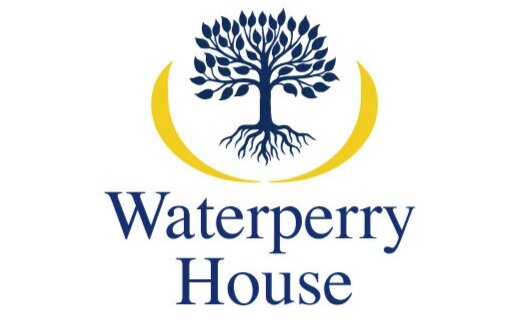A Short History of Waterperry House
Parts of the house date to Tudor times although archaeologists have found pottery, fragments of which are to be seen in the Museum of Rural Life, dating from Roman times.
Waterperry House owes its graceful Queen Anne frontage to Sir John Curson, who had it rebuilt in 1713. The Henleys were the last family to own the manor house in the 20th century. In 1925 the whole estate was sold to Magdalen College, Oxford University.
In 1931 Magdalen College Oxford were looking for new tenants for Waterperry House, the redoubtable Beatrix Havergal with her partner Avice Sanders, took over the Waterperry lease in September 1932 to start their Horticultural School. They spent the first five years preparing the land, felling and clearing trees, building glasshouses and improving the soil for production.
With the outbreak of World War II Waterperry was turned by Miss Havergal into a market gardening operation, producing much-needed food. The task was to keep the horticultural school operating as a going concern, whilst adding to the war effort by accommodating the arrival of the Women’s Land Army personnel. They were soon put to work ploughing and digging for victory.
Land Army girls joined the existing staff and students and gardening courses were held on the last Saturday of the month called ‘Dig For Victory Demonstrations’ to teach people how to grow their own food. By now Waterperry had become an established and well-respected school.
The last decade of the Gardening School took its toll on the ageing Miss Havergal and Miss Sanders. Miss S died in her sleep at the age of 75 on 20th August 1970 and is buried in the churchyard at Waterperry. She is commemorated by a plaque in the church.
Miss H was desperate to secure a continuity for Waterperry and in 1971 put the estate on the market for sale. There was interest from the Subud group, who remarked at the time: ‘As one enters the gate, one knows that here is an enterprise which has been the long preoccupation of the past forty years of a group of devoted people. Every plant in the ground and in the greenhouses proclaim this loving care, this spiritual link with the soil. Waterperry is a place to love – it needs love and it gives it back’. However it was The School of Philosophy and Economic Science who eventually bought the estate, and from August 1971 the Waterperry Horticultural School for ladies was no more.
The house is now used primarily for spiritual retreats for students of The School of Philosophy who have attended at least one of our 10 Week Courses online or in various locations around the country and the world.
A typical daily programme of a Practical Philosophy Retreat consists of such things as mantra meditation, quiet time, periods of reflection, individual and group study periods, group discussions, food preparation and care of the house. Practical Philosophy in action!
There are specific subject retreats throughout the year such as Art, Music and Christianity, Meditation or Sanskrit.



